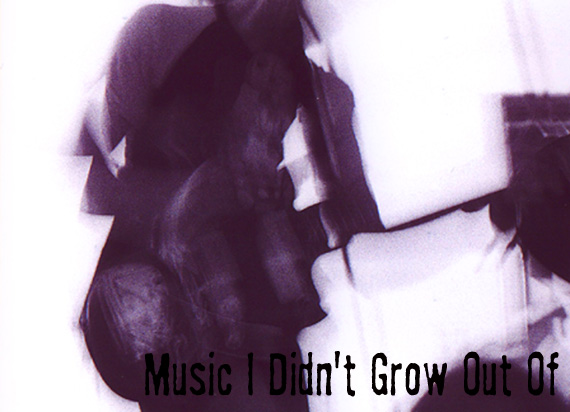
It wasn't a surprise to me that the new Electrelane album didn't sound precisely like any of the Brighton UK band's previous releases-- with each album they've made, Electrelane has managed to do something different, veering in and out of kraut-influenced instrumental drones, choral arrangements, driving postpunk, surf-rock, and folk instrospection. The breadth of the band's inspiration, under the capable direction of guitarist/farfisist/pianist and singer Verity Susman, is massive, but at no point does it seem tinged with bullshit or self-satisfaction. Even when they're putting old poems to music, occasionally in languages other than English, or playing odes to Sapphic modernism, Electrelane sound as humble as they are inventive.
They're a band that has sounded like a lot of things, but until now Electrelane have consistently retained a certain emotional distance from the listener, veiling feelings in oblique lyrics and inaccessible sounds. Thus, it's a surprise to discover that No Shouts, No Calls is an unqualifiedly vulnerable album. It's charming, it's tender, it's plaintive, and melancholic, and like a multi-layer cake all the pieces of it are held together by seams of sweet melody. Time may prove me wrong, but I think I can safely say that this album-- especially with a ship on its cover and a song ostensibly about sailing-- is the closest thing Electrelane will ever make to a Beach Boys record.
For all its pop, though, the album is sad one. The lyrics deal largely with mournful recollections of a failed relationship, clearly one which the speaker wishes had continued longer. No Shouts, No Calls is held together as much with longing as with melody-- from beginning to end, it reads like a series of letters pleading for a loved one's return. Yet the prevailing tone is of peaceful resignation, rather than the emotional frenzy of most break-up records. The speaker's attitude toward her lost love is respect and acceptance: the storm she speaks of in "At Sea" is internal, and the songs sound less like a communication between two people than one voice sorting through its feelings with itself. If these songs are letters, then they're not necessarily intended to be sent-- or maybe they are? The speaker seems no more sure than the listener of that.
In that indecision appears the vulnerability that's so striking for an Electrelane record. Where previous records seem only to express emotions that have been throroughly interrogated, songs like "To The East" and "Cut and Run" are surprisingly uncertain and raw. The austerity of 2005's Axes is totally absent here-- this record is warm in all the places its predecessor was grim and cold, and though at times it shimmers dreamily, it does so not with Axes' detachment, but instead with all too much attachment.
As usual, the instruments are played masterfully. Susman and guitarist Mia Clarke are confident enough to paint guitar lines only where needed, playing at full bore occasionally but just as willing to hold back and allow the rest of the song to assert itself. Bassist Roz Murray is subtle but solid: her lines stick out only sometimes, but a closer listen reveals how crucial they are to the whole of the melody in nearly every song. Key to the band's overall sound, drummer Emma Gaze has reined in some of the intensity of her style, limiting the heavy-hitting noise in favour of more minimalist beats that bring attention to the spaces between themselves as much as to the sound of drums and cymbals. While Gaze's fierce and insistent drumming has often been my favourite part of previous records, she proves here that she can make restraint work as well, especially to clear a path upon which other instruments may travel easily. The result is a record largely about hesitation played with absolute confidence: the band remains on top of their game.
Like Axes, No Shouts, No Calls makes sense mostly as a complete album and is intended to be listened to as such. Certain instrumental tracks ("Five" and "Between the Wolf and the Dog") don't make as much sense in the absence of their interaction with previous and following tracks. That doesn't make the record weak, but it does suggest an indivisibility that may be off-putting to some listeners. It hasn't been to me-- this has been my favourite release of the year so far.



No comments:
Post a Comment